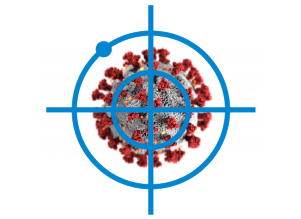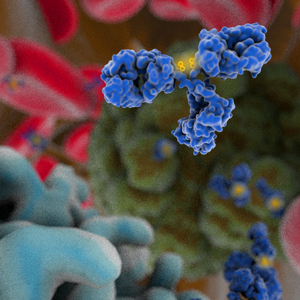 On December 17, 2021, Amgen announced that the U.S. Food and Drug Administration approved Tezspire™ (tezepelumab-ekko) for the add-on maintenance treatment of adult and pediatric patients aged 12 years and older with severe asthma. Tezepelumab (AMG157, MEDI-9929) is a human IgG2 antibody that targets a cytokine, thymic stromal lymphopoietin, that plays a key role in asthma inflammation. The drug was developed by Amgen in collaboration with AstraZeneca.
On December 17, 2021, Amgen announced that the U.S. Food and Drug Administration approved Tezspire™ (tezepelumab-ekko) for the add-on maintenance treatment of adult and pediatric patients aged 12 years and older with severe asthma. Tezepelumab (AMG157, MEDI-9929) is a human IgG2 antibody that targets a cytokine, thymic stromal lymphopoietin, that plays a key role in asthma inflammation. The drug was developed by Amgen in collaboration with AstraZeneca.
The approval was based in part on data from the randomized, placebo-controlled Phase 3 NAVIGATOR study (NCT03347279), which evaluated the effects of tezepelumab in adults and adolescents with severe uncontrolled asthma. In this study, patients received tezepelumab (210 mg; n=529) or placebo (n=532) SC every 4 weeks for 52 weeks. The primary outcome measure of the study, the annualized asthma exacerbation rate from baseline to Week 52, was met. For the tezepelumab group, the annualized rate of asthma exacerbations was 0.93 (95% CI, 0.80 to 1.07), while the rate was 2.10 (95% CI, 1.84 to 2.39) with placebo (rate ratio, 0.44; 95% CI, 0.37 to 0.53; P<0.001). Overall, data from the study indicated that, compared to those administered placebo, patients who received tezepelumab had fewer exacerbations and better lung function, asthma control, and health-related quality of life.104 A pre-specified exploratory analysis showed that tezepelumab reduced the annualized asthma exacerbation rate in patients with nasal polyps by 86% (95% CI: 70, 93) and 52% (95% CI: 42, 61) in those without nasal polyps over 52 weeks compared to placebo given with standard of care.
Marketing applications for Tezspire are under regulatory review in the EU, Japan and several other countries around the world.




